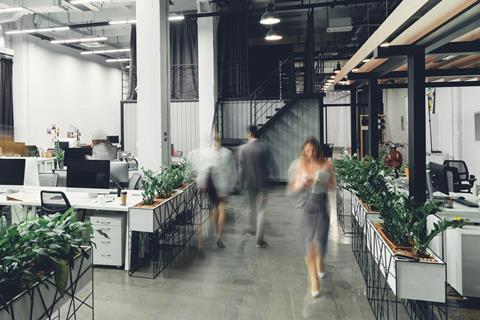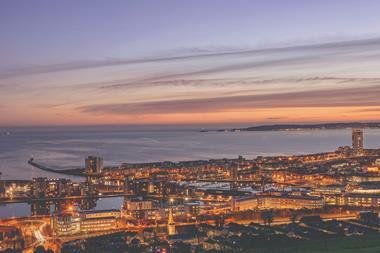Hotels are experiencing pressures like never before and while the vaccination rollout gives cause for hope, cases remain high and we are still in a strict lockdown – some distance from a total fix.

With tens of thousands of jobs in the balance, it is likely that no new UK or European hotel developments will start in 2021. But as our Forecast 2021 report predicts, existing assets will be repurposed and ownership will change as savvy investors swoop on deals. A number of owners are testing the water with sales now, perhaps looking to stem losses while pondering burgeoning alternative asset classes such as sheds.
On the positive side, hotels have become good at operating lean and can work at 50% occupancy, down from 60% to 70% a few years ago, so the door has not fully closed yet. Space will be repurposed with medical-grade material and new technology, as well as a different approach to driving revenue for the various spaces in the hotel.
Hotel use will have to become far more flexible, from renting spaces for work purposes to serving the community beyond just guests. Flexible workspace brands are circling conferencing and meeting facilities. It makes sense; hotels by their nature sell space and have the transferable hospitality skillset. So favourite brands will move in to these spaces on a mutually beneficial basis as the flexible and hybrid working revolution booms.

Hotel rooms became more compact as the hotel’s social and common areas were seen as the places where guests would spend more time – and money. A room was a place to shower, watch TV and sleep. But communal areas may now shrink to allow for larger, multi-functional rooms with space for a desk, in-room dining, or online-led workouts, as guests might be reluctant to share a communal gym.
Relationships with local businesses could take off as valuable hotel space once given over to a gym is repurposed, with guests directed to a local affiliate.
Hotels can also relieve themselves of the financial burden and potential liability of in-house restaurants in the post-pandemic environment by allowing food to be delivered to the establishment.
Partnerships can also be set up with local restaurants so guests can stroll up the street, enjoy a meal for a discounted price and charge it to the hotel room. Meanwhile, creating spaces in the hotel that can be activated through collaborations, events and strong partnerships is a great way to bring energy to the space and keep people engaged.
Mixed-use developments that include hotels will rise in popularity, with investors and developers seeking to de-risk assets, repurpose underperforming stock in their portfolios and create local, multi-functional hubs with the community and consumer in mind.
When a large development relies solely on a single tenant type, the entire building is at risk if that sector slows down – just look at the swathes of empty retail and offices.
Mixed-use development can help lower risk and create a localised ecosystem that feeds off itself and operates more like a circular economy; homes bring residents and hotels bring guests, each in turn delivering a ready-made audience to local amenities.
While there is still much we do not know, we can say for sure that space utilisation, technological integration and mixed-use intervention will be critical to achieving operational efficiency, guest satisfaction and profitability.
Todd Lundgren is EMEA managing director of CallisonRTKL





























No comments yet